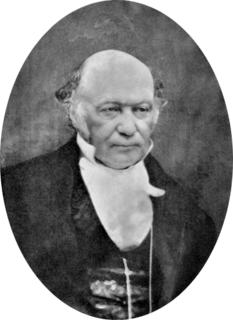A Quote by Frederick Lenz
We are cognizant of time, the sense that there is mutability. Time is change. It's the separation of eternity from itself. When eternity is separated from itself, we see it appear in different forms. Time is not a movement in space. Space is a movement in time.
Related Quotes
Since time itself is not movement, it must somehow have to do with movement.Time is initially encountered in those entities which are changeable, change is in time. How is time exhibited in this way of encountering it, namely, as that within which things change? Does it here give itself as itself in what it is? Can an axplacation of time starts here guarantee that time will thereby provide as it were the fundamental phenomena that determine it in its own being?
Life is movement. Movement is change. Every time a sub molecular particle swings through time and space, something is changing. Change, therefore, is inevitable. It is the nature of life itself. The trick in life is not to try to avoid change, but to create change. Then it is the kind of change you choose.
Bistromathics itself is simply a revolutionary new way of understanding the behavior of numbers. Just as Einstein observed that space was not an absolute but depended on the observer's movement in space, and that time was not an absolute, but depended on the observer's movement in time, so it is now realized that numbers are not absolute, but depend on the observer's movement in restaurants.
Eternity isn't some later time. Eternity isn't a long time. Eternity has nothing to do with time. Eternity is that dimension of here and now which thinking and time cuts out. This is it. And if you don't get it here, you won't get it anywhere. And the experience of eternity right here and now is the function of life.
One can take eternity and time to be predicates of God since, being the Ancient of Days, He is the cause of all time and eternity. Yet He is before time and beyond time and is the source of the variety of time and of the seasons. Or again, He precedes the eternal ages, for He is there before eternity and above eternity, and 'His kingdom is an everlasting kingdom' (Ps. 145:13). Amen.
But as Van casually directed the searchlight of backthought into that maze of the past where the mirror-lined narrow paths not only took different turns, but used different levels (as a mule-drawn cart passes under the arch of a viaduct along which a motor skims by), he found himself tackling, in still vague and idle fashion, the science that was to obsess his mature years - problems of space and time, space versus time, time-twisted space, space as time, time as space - and space breaking away from time, in the final tragic triumph of human cogitation: I am because I die.
What differentiates time from space is that time does have a direction. In that sense it is different from space. I think that's certainly true that whereas spatial dimensions don't have direction or an arrow, time does. It runs from past to future. But I see that arrow of time as rooted in a deeper metaphysical reality, namely the reality of temporal becoming - of things coming to be and passing away. That is why time has this arrow. But it's not sufficient to simply say that time and space are distinct because time has a direction. The question will be: why does it have a direction?
One of the great intellectual mistakes Einstein made is that he thought that space and time are physically or ontologically entangled. In the present non-spatial universal computational program, space and time happen to be entangled to the extent that, under certain unique circumstances, changes in spatial measurements indicate changes in temporal ones. However, a change in the program itself may cause space and time to disentangle.
The cosmos exploded, actualizing its potentiality of space and time. The centers of power, like fragments of a bursting bomb, were hurled apart. But each one retained in itself, as a memory and a longing, the single point of the whole; and each mirrored in itself aspects of all the others throughout all the cosmical space and time.
Death is the end of the fear of death. [...] To avoid it we must not stop fearing it and so life is fear. Death is time because time allows us to move toward death which we fear at all times when alive. We move around and that is fear. Movement through space requires time. Without death there is no movement through space and no life and no fear. To be aware of death is to be alive is to fear is to move around in space and time toward death.
Time is said to have only one dimension, and space to have three dimensions. ... The mathematical quaternion partakes of both these elements; in technical language it may be said to be 'time plus space', or 'space plus time': and in this sense it has, or at least involves a reference to, four dimensions. And how the One of Time, of Space the Three, Might in the Chain of Symbols girdled be.
Even so does he who provides for the short time of this life, but takes no care for all eternity; which is to be wise for a moment, but a fool for ever; and to act as crossly to the reason of things as can be imagined; to regard time as if it were eternity, and to neglect eternity as if it were but a short time.



































